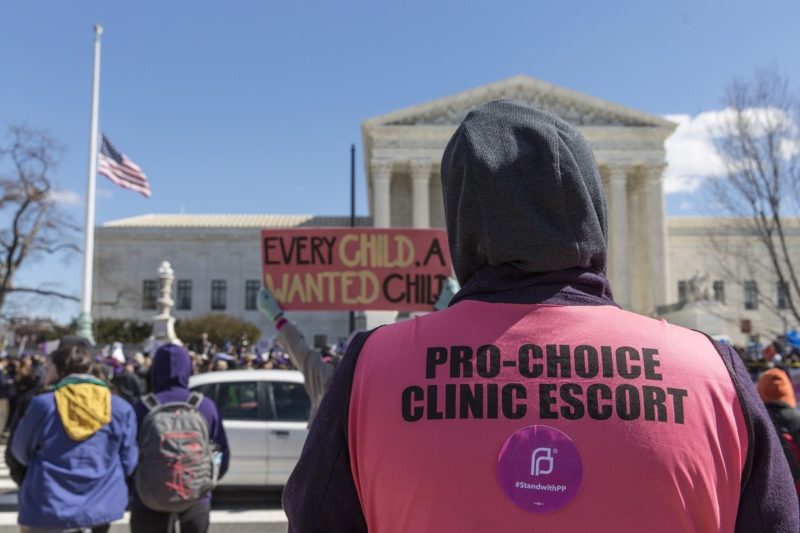New Year Promises an Uphill Battle on Abortion—What You Can Do About It
It’s incumbent upon each of us as individuals—as well as within and across social justice movements—to fight every attempt to block abortion access.

It may be a new year, but anti-choice politicians will be sticking to their same old resolution: to undermine abortion access whenever and however possible. Some 41 state legislatures will be in session in the next two weeks, as Rewire Staff Reporter Teddy Wilson noted in a December 21 article, and if 2016 is any indication of what lies ahead, many of these legislatures are ready to inflict widespread damage to this basic human right.
Indeed, we are facing an onslaught of attacks on abortion rights—at both the state and federal levels—and must gear up for an epic uphill battle. The pro-choice movement is motivated, creative, and determined, but beyond that, we must also understand our adversaries’ tactics and maneuvers.
Briefly, let’s review the past year.
Throughout most of 2016, Texas appeared to be the crown jewel in our country’s anti-choice royalty, with an appearance at the Supreme Court to defend provisions in HB 2, its omnibus anti-abortion bill. (Spoiler alert: In a 5-3 decision, the Court declared unconstitutional those provisions, which mandated providers have admitting privileges at a local hospital and meet the same standards for ambulatory surgical centers.) Even after the stinging Supreme Court defeat, Texas refused to simply roll over. Instead, its Department of State Health Services (DSHS) doubled down, proposing rules that require the burial or cremation of fetal remains (the Center for Reproductive Rights has filed a legal challenge). DSHS also published a booklet (ironically titled “A Woman’s Right to Know”) promoting debunked associations between abortion, breast cancer, and suicide risks.
Not to be outdone by its southern cohort, Ohio closed out 2016 with a bevy of anti-choice moves. While the Buckeye State is no stranger to anti-abortion efforts, its legislature appeared emboldened by Trump’s election win (and his forthcoming Supreme Court pick), and passed an unconstitutional six-week abortion ban as part of a larger childhood abuse and neglect bill, as well as a 20-week abortion ban with no exceptions for rape or incest. Within days, Ohio’s anti-choice governor, John Kasich, vetoed the six-week ban but signed a 20-week ban—which has its own dangers—into law.
Ohio also revoked the operating license of one of the state’s last abortion clinics for its failure to obtain a transfer agreement with a nearby hospital for emergencies, a requirement that seems to change depending on the week. On the same day Gov. Kasich signed the 20-week abortion ban—a big day for Ohioans—a judge issued an emergency order allowing the clinic to remain open while it appeals. This is a thin ray of hope for people of reproductive age in Ohio, who face numerous obstacles in obtaining abortion care, including a quickly diminishing number of providers.
Although the news out of Texas and Ohio garnered national media attention, those states weren’t the only ones working overtime to curtail abortion access in 2016. Eighteen states enacted 50 anti-choice restrictions (like extended waiting periods and clinic regulations, “D and E” bans, and fetal tissue research restrictions, among others) in 2016, according to the Guttmacher Institute’s latest analysis. An Indiana lawmaker went so far as to propose a total ban on abortion in the state, which he promised to formally introduce in the coming weeks.
But even without introducing partial or total bans, some state legislators found ways to stigmatize abortion care. Just look at lawmakers in Oklahoma, who took a cue from Texas and got inventive: Sen. A.J. Griffin (R-Guthrie) introduced a bill that would have required anti-choice signage to appear in schools, restaurants, and other public restrooms.
Individually, these state-level attacks on abortion are causes for concern, but when considered collectively, they’re downright terrifying. They represent a national trend, one that’s gaining momentum in the wake of the presidential election. Trump unabashedly ran on an anti-abortion platform—even promising during an October debate the immediate overturn of Roe v. Wade—leaving anti-choice lawmakers giddy at the possibility of states once again determining the future of abortion rights. Given the frightening scope of forthcoming attacks against reproductive rights, it requires a national response—which the pro-choice community is already organizing and executing.
Advocates have gone on the offensive, filing lawsuits in three states—Alaska, Missouri, and North Carolina—attacking abortion restrictions. And they’ve promised similar moves in other states. At a grassroots level, donations to local abortion funds as well as Planned Parenthood (in the name of former Indiana Gov. Mike Pence, no less!), have soared.
This is certainly heartening, but it’s just the beginning.
It’s incumbent upon each of us as individuals—as well as within and across social justice movements—to fight every attempt to block abortion access. We have fought too hard and come too far to let out-of-touch politicians roll back our rights.
No matter what state you live in, whether it’s a friend or foe of Roe, do what you can: Call your state and federal representatives to voice your support of abortion access, donate to your local abortion fund, volunteer as a clinic escort, speak openly about abortion to help erase stigma, and for the love of all that’s pure and holy, pray/meditate/what-have-you that Justice Ruth Bader Ginsburg stays healthy for the next four years!
